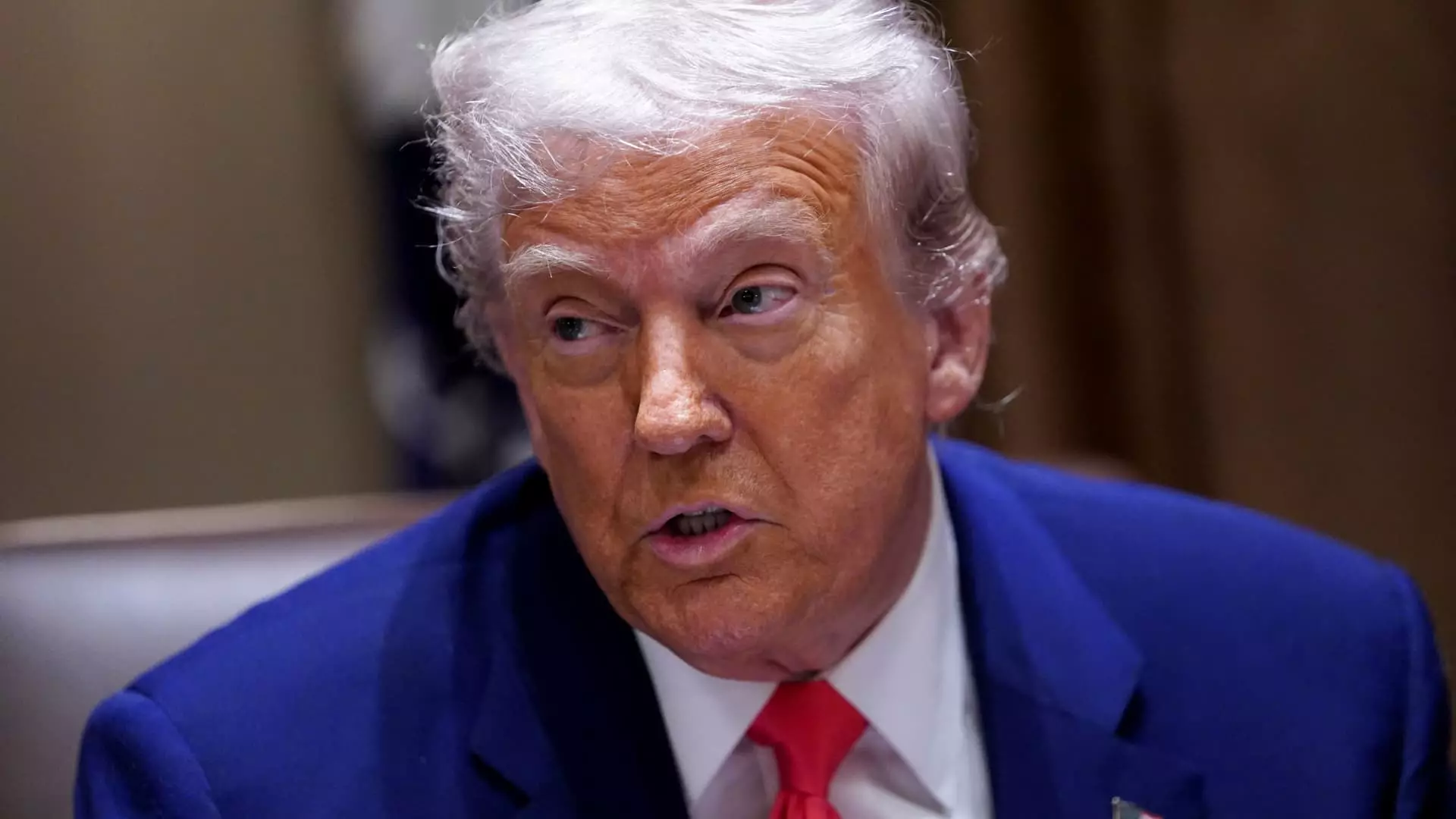In the swirling chaos of international trade, there is a glimmer of hope for tech giants threatened by the iron fist of U.S. tariffs. Recently, U.S. Customs and Border Protection announced critical exemptions for smartphones and other crucial tech products from the staggering 145% tariffs imposed by President Trump on Chinese imports. This move may be reckoned as a lifeline to industry behemoths like Apple, whose expansive manufacturing operations hinge largely on resources and labor from China. Still, the broader implications of such tariff policies reveal much about the fragility and resilience of the technology sector.
The immediate fallout of the tariffs was nothing short of catastrophic for tech companies, with Apple suffering a loss of over $640 billion in market value shortly after the announcement. The specter of inflated device prices, with iPhones potentially soaring to over $3,500, sent shockwaves across the market, leading to a sharp decline in stock values. Suddenly what seemed like a protective measure morphed into a threat—a startling reminder of how government policy can disproportionately affect whole industries and the economy at large. The burden of uncertainty not only reshaped tech stock trajectories, but also sent tremors through Wall Street, further illuminating the intersection of politics and market stability.
Short-Sighted Strategy: The Tariff Trap
While the exemption represents a momentary reprieve for technology firms, one must ask: at what cost does this relief come? The strategic implementation of these tariffs underscores a perilous lack of foresight among policymakers. As tech stocks rallied on the news of exemptions, there is an unsettling reality here—protectionist policies often lead to retaliatory measures from international partners. This tit-for-tat approach creates noise, tension, and long-term instability within the market.
Indeed, the reality of high tariffs was something tech leaders had warned against vehemently. Giants like Apple made it clear that higher manufacturing costs due to exorbitant tariffs would ultimately kiss their customers, forcing them to bear the brunt of these economic decisions. This vicious cycle gives way to questions about the moral responsibility of leaders who prioritize short-term gain over sustainable growth. A laissez-faire approach may be necessary to keep the industry buoyant. Instead of hasty and punitive tariffs, an initiative rooted in cooperation and mutual benefit could pave the road toward long-term relationships and economic stability.
The Power of Lobbying: An Audible Message
The bending of tariff regulations speaks volumes about the influence of the technology sector on political decisions. Dan Ives of Wedbush Securities heralded the exclusions as a “game changer,” yet this scenario raises critical questions about the integrity of governance. Have corporate interests overshadowed public sentiment, leading to policymaking that seems increasingly insulated from the realities faced by everyday Americans? The voices of powerful CEOs wield considerable clout, which skews the balance of decision-making toward corporate profit rather than protecting the citizenry.
As much as our economy thrives on innovation and competition, it is essential to ensure that lawmakers do not merely capitulate to pressure from the wealthy few. The visibility gained through lobbying draws attention to an alarming trend where the voices of major corporations can drastically influence national policies that impact millions. This starkly contrasts with the desires of average consumers, who often find themselves lost in the intricate web of tariffs and trade wars.
Future Regulations: Balancing Control and Growth
While the exemptions present a temporary cushion against overwhelming tariffs, they do highlight a deeper need for comprehensive trade policies that truly reflect the complexities of the global economy. Instead of imposing heavy tax burdens that threaten the very essence of market growth, a well-considered regulatory framework could stimulate innovation while maintaining fair competition.
The current fabric of tech commerce requires a careful amalgamation of regulation and freedom. As we navigate this geopolitical landscape, the administration must recognize that the true trajectories of innovation and consumer pricing are entwined with transparent and fair policies. The fight for independence does not lie solely in protectionism, but rather in fostering partnerships that can uplift all parties involved.
In this delicate balance, America must foster an environment that appreciates its role as a global leader while confronting domestic realities. In the face of tariffs, the growing chasm between corporate giants and the consumers they serve should prompt a thoughtful re-evaluation of how policies are crafted for the future.


Leave a Reply